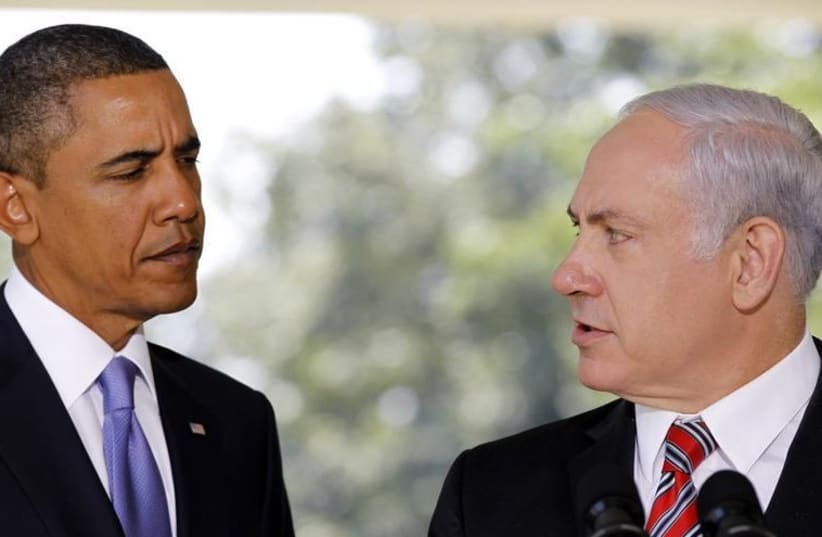See the latest opinion pieces on our page
Though it sounds so familiar you might swear this happened last year or last week, this particular exchange took place between secretary of state John Foster Dulles and foreign minister Golda Meir in December, 1956.Nearly identical conversations have taken place countless times ever since between the governments of Israel and the United States.We remember these sorts of crises between Menachem Begin and Jimmy Carter in the late 1970s or between Yitzhak Shamir and George H.W. Bush in 1991, and usually chalk them up to the anti-Israel stance of the particular president involved. However, we often forget that similar clashes also took place with Israel’s staunchest supporters, like Ronald Reagan and Bill Clinton.In fact, after the third major bilateral crisis took place in Reagan’s first year of office, then US ambassador Sam Lewis described the temperature of the bilateral relations as having reached “sub-Arctic levels.” TV journalist David Brinkley even asked Israel’s ambassador, “Can you see how... the relations between our two countries will ever be warm and friendly again?” There are two points to be made in this regard. The first is that many journalists, pundits and others often suffer from terrible myopia when discussing the present tensions in US-Israeli relations. The oft-heard cry that “Obama is the worst president for Israel in history” reveals more about our collective amnesia than it does about the actual ranking of this president in historical comparison.The truth is that this bilateral relationship is just like the old married couple who sometimes argue in loud tones even as they celebrate their golden anniversary.If we look at the underlying long-term trend of bilateral relations, it seems that these regular, and sometimes ugly, quarrels leave no lasting impact.Similarly, while doubtless the relationship is best when kept bipartisan, one only need recount James Baker’s infamous “f^@k the Jews... they didn’t vote for us anyway” remark to remember a time when support for Israel was not precisely bipartisan.A second point, however, is that these quarrels are almost always over the same issues. First, most every US administration criticizes Israel’s use of force. This was true regarding the invasion of Lebanon in 1982, the initial response to the second intifada and the destruction of Iraq’s nuclear reactor in 1981. After the Iraq bombing, the US even suspended the delivery of F-16 aircraft. Could you imagine the Republican candidate today who would embrace that part of Reagan’s legacy? Still, the number one point of disagreement is that the United States, since 1949, has regularly opposed Israeli attempts to gain additional territory, or any step it might take in that direction. This was true of Israel’s moves toward annexing parts of the Sinai in 1956, unifying Jerusalem, passing the Golan Heights Law in 1981, and of course, all settlement construction undertaken in areas conquered since 1967.When these disputes erupt, Israelis tend to underestimate the degree to which American policy is truly long-standing, bipartisan American policy, and not simply the result of some presidential caprice. And this is precisely why that conversation between Dulles and Meir feels so familiar to our ears today.The author is a Post-Doctoral Research Fellow at the Hebrew University’s Leonard Davis Institute for International Relations. A Hebrew version of this article appeared in Ynet.
Not the first crisis, and certainly not the last
‘I’m perplexed,” the American secretary of state told Israel’s foreign minister.
